[Original by Alicia TURNER, 2023 Public Relations Intern (June 29, 2023); Translated by A. Turner]
Hi everyone! My name is Alicia and I’m an intern with JVC. This report will detail the vegetable garden program at the Drop-In Center in South Africa, which myself and my fellow intern, Moeka SANO, held an interview with Dudu, a local staff member at the JVC South Africa office, to hear the details of. Those who are interested can read the reports on the volunteer carer and guardian training sessions as well as the Scouts and Cubs programs, which will soon be published!
About the Drop-In Center (DIC)
JVC is partnered with the DIC, a voluntary organization based in Limpopo, South Africa, that was established with the aim to break the cycle of abuse and neglect present in South Africa by providing care for orphans and vulnerable children. Limpopo is a state in South Africa where healthcare and educational outcomes are severely lacking. The DIC aims to combat this by providing youth aged 5 to 24 the skills to create a life for themselves regardless of the challenges they may face, including sexual education and education regarding society.
To achieve this vision, JVC facilitates training sessions for the volunteer carers and guardians of children at the DIC, as well as running a vegetable garden program and Scouts and Cub program for children who attend the DIC.
About the vegetable garden program
The DIC began the vegetable garden program a few years ago, where children water and tend to the garden every day and learn garden maintenance techniques each Thursday. The vegetables harvested from the garden are used in children’s lunches provided by the DIC, and at times may be taken home by children to feed their families. The meals the children eat at the DIC may be their last or only meal for the day, so the preservation of the garden is incredibly important to the DIC’s aims.
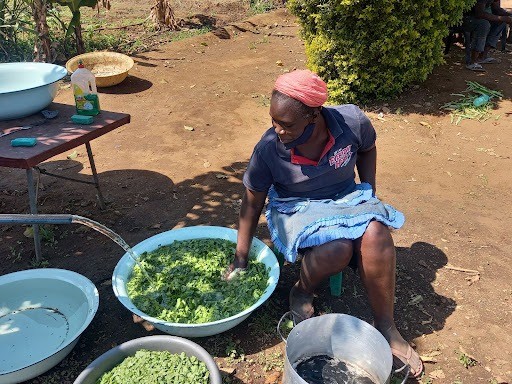
A volunteer carer preparing lunch
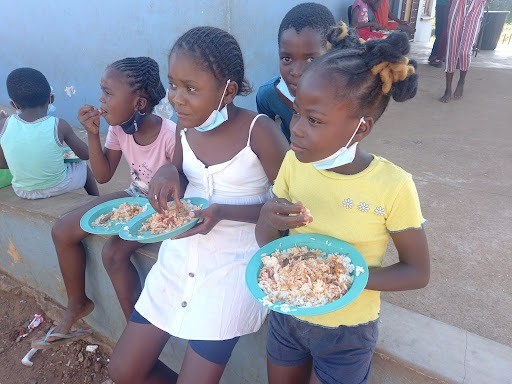
Children enjoying lunch at the DIC
The struggle under COVID-19
However, during the peak of the COVID-19 pandemic, not just the vegetable garden, but the entire DIC had no choice but to cease activities. Between the closure of the DIC and the sharp rise in unemployment rate, the state of the children became a cause for concern.
To ensure the health and safety of the children, the volunteer carers continued working, and visited the houses of around 40 children once or twice per month. What soon became clear was the children’s families’ lack of stable access to food.
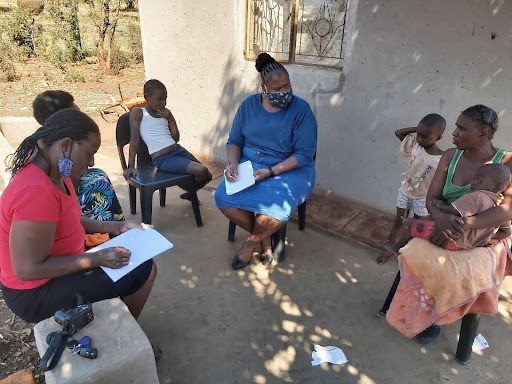
Dudu (center) and volunteer carers (left) visiting the family of a children who attends the DIC
To combat this problem, the volunteer carers delivered food and necessary hygiene supplies to the children’s houses. The food distributed included cornflour, oil, salt and sugar, as well as dried beans, and canned fish and vegetables to those who didn’t own a refrigerator, in addition to soap, toothpaste, washing detergent, and masks.
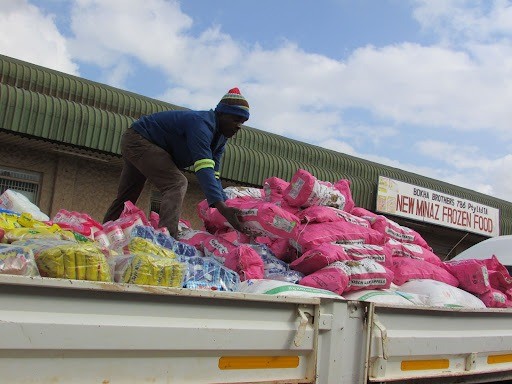
The DIC preparing the distribution of emergency food and hygiene supplies
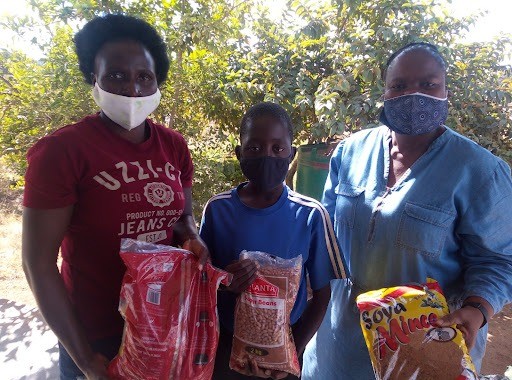
A family who received the food support
Seeing how events like the COVID-19 pandemic are able to wreak havoc on the stability of people’s lives served as a reminder of the importance of activities like the vegetable garden program. Ultimately, the key point of the program is the life skills, which children get through learning how to maintain a garden. The DIC hopes that the learning and real experience that the program provides children will become skills that they can use for the rest of their lives to feed both themselves and their families.
While the DIC was under closure, volunteer carers would visit children’s homes to provide guidance and training as children began and maintain their own vegetable garden plots on their own properties. In some cases, guardians would join in the training, and it would serve as an opportunity for relationship building between the guardian and child.
The reopening of the Drop-In Center
In early May 2022, the vegetable garden at the DIC was reopened.
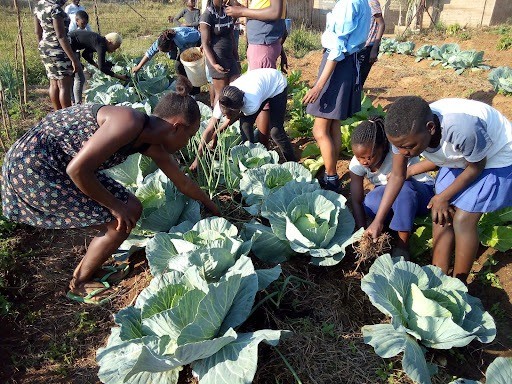
Children tending to the garden at the DIC
45 children took part in newly arranged foundational training in beginning a garden, learning plot design and mulching. They took on the role as primary custodians of the garden, consisting of eight plots of tomatoes, mustard greens, cabbage, onion, and green pepper. In early June, composting and garden maintenance were introduced into the skills taught to children.
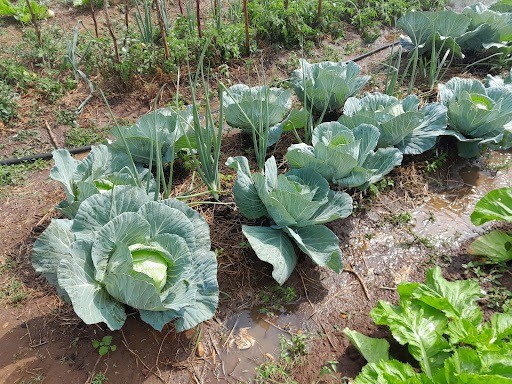
Cabbage and onions that the children grew
Depending on the day, approximately 20-50 children take part in tending the vegetable garden, and it has been reported that only about half of the children are actively interested in joining the gardening activities. However, the volunteer carers are dedicated to ensuring that children understand the importance of the vegetable garden at the DIC and increasing the number of daily participants and have introduced measures such as installing a tank to supply the garden with water to encourage participation.
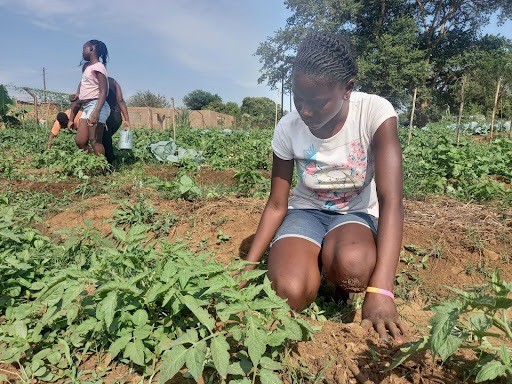
A child tending to the garden at the DIC
